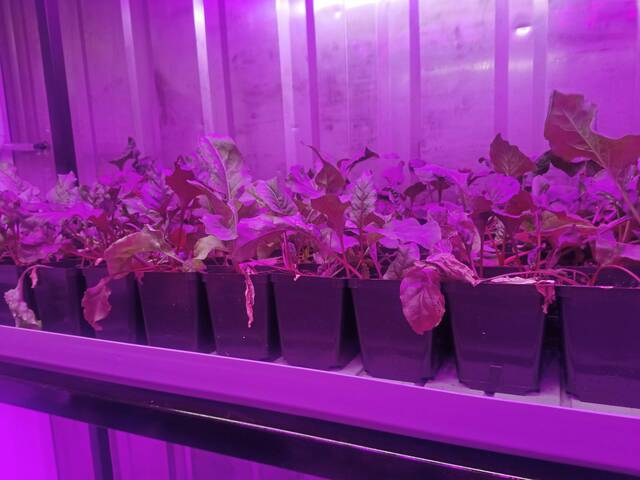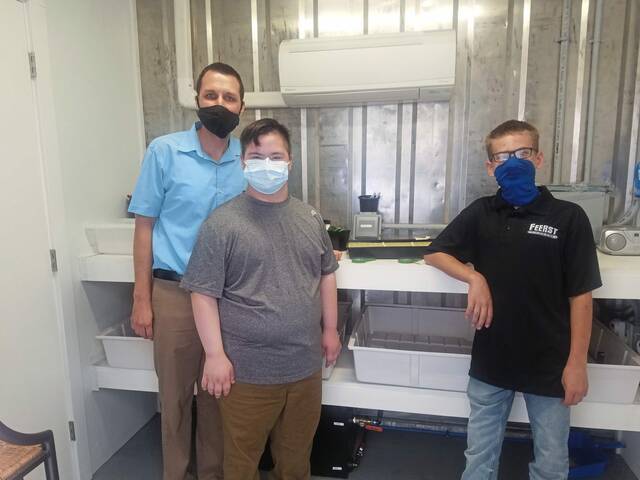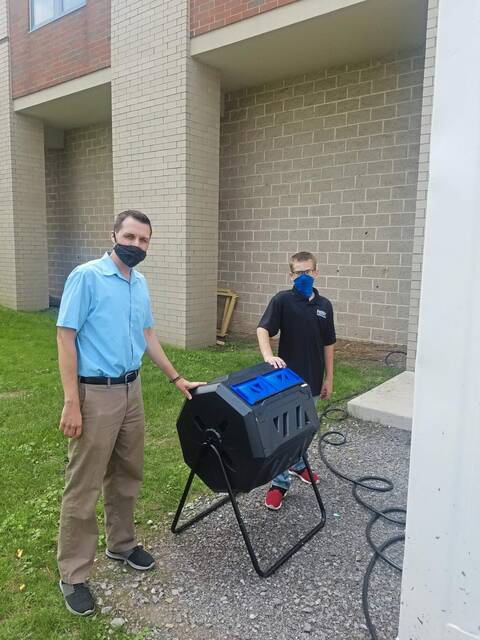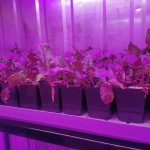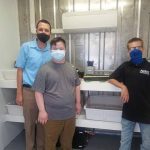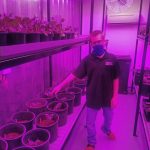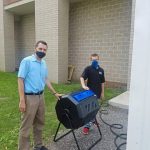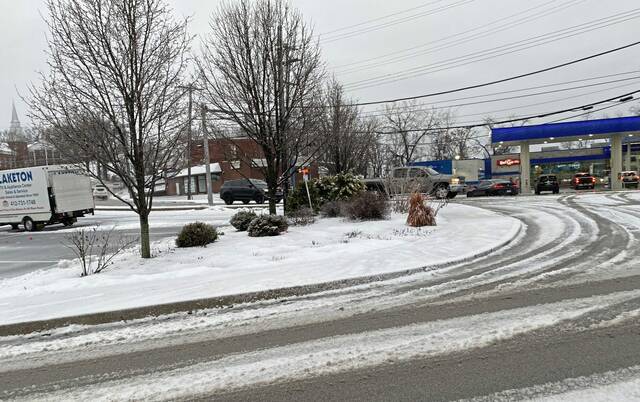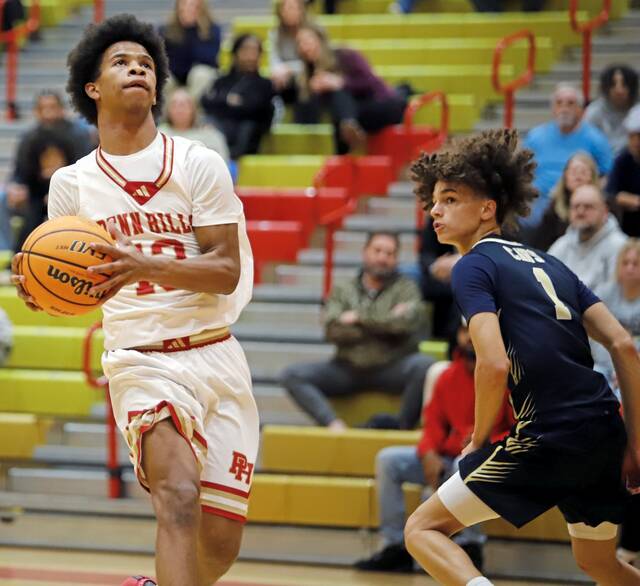When Riverview High School adopted a small hydroponics unit for inside a classroom, students were fascinated.
So when the chance came in 2019 to apply for a USDA grant for $100,000 that would allow them to install a full hydroponic grow pod system right outside the school, district officials jumped at the chance.
The district received and matched the grant, and the unit is now fully operational at the Riverview Jr./Sr. High School. It is helping to enrich students by teaching them how to grow food.
Run by life skills teacher Mike McConnell with primary help from students Caden Smith and Jacob Bennett, the grow pod unit utilizes sustainable energy, recycled water and solar panels, and it is approaching environmental neutrality.
Called a Growtainer and built by Glenn Berhman, the unit is the only one of its kind in Pennsylvania. In fact, Riverview is the first high school in which a full unit has been installed. In the past, they have only been installed at universities.
Students in grades 7-12 can utilize and learn from the facility, and it helps supplement science, STEAM and STEM programs at the school, allowing students to not only grow their own food, but also help supply freshly grown produce to the district’s food services program.
“It’s a great extension of our science program here at the junior and senior high school,” said Neil English, Riverview superintendent.
The unit features two separate areas, one for growing in dirt and one that is a full hydroponic system in which the plants are grown in rockwool, a horticultural growing media made from basalt rock and chalk.
The area for growing in dirt features zucchini, tomatoes and peppers. The students use a liquid or powder fertilizer mixed in water along with organic potting soil to feed the vegetables. The plants are in pots, which then sit atop trays under an LED lighting system.
The students utilize a water holding tank to water the plants, and any overflow runs outside the grow pod to a storm drain.
On the hydroponic side, the students are growing kale, chard, cabbage, winter lettuce, spinach, basil and bok choy. That side utilizes a fully automated water-dosing system set up on a timer. The nutrients are already mixed in, with an electronic system measuring the exact water PH and the temperature in the grow room.
Four times per day, the water system goes off, flooding the trays the rockwool sit in for three minutes. The water then drains back into another tank, where it is then reused, making the hydroponic system fully green, sustainable and recyclable.
Smith and Bennett spend a full period (40 minutes) per day taking care of the plants. They cut some when they’re ready, which allows them to grow again, and they also spend a lot of time on maintenance and cleaning.
“I spend a lot of my time in the dirt unit, cleaning the system,” Smith said. “The hydroponic unit is much easier than the dirt unit. Mixing the fertilizer for the dirt is difficult, and they need a higher level of care without an automatic drip system.”
According to McConnell, the grow pod unit not only teaches students about science concepts, it also allows them the chance for some vocational training. For instance, Smith plans to use his experience in the grow pod to eventually go into the professional landscaping business.
“We started our journey setting up a hydroponic unit in the classroom and the students were fascinated,” McConnell said. “It was a real educational opportunity. So when this chance came up, with the school’s support, we took advantage of it.”
In addition, utilizing a grant from McDonald’s, the school installed a composter next to the grow pod for any plant waste they create. It also takes recyclable paper and compostable cafeteria waste. Smith and Bennett spin it every day and use the compost to make their own fertilizer for the grow pod plants, adding to the setup’s sustainability.
Eventually, they hope to be growing 1,000–2,000 plants per month when the pod is fully optimized, and there are plans to partner with a food pantry at some point to donate produce to those in need. There are even some plans in the works to supply some of the vegetables to the community at large.
“The ultimate goal is to have two classes use this at lunch, and we want to offer Hello Fresh-style kits to the community with specialty recipes for things like bok choy and bean sprouts,” McConnell said.
For now, though, the students are learning life skills and having fun.
“I enjoy this a lot,” Smith said. “I could stay out here the whole school day.”


